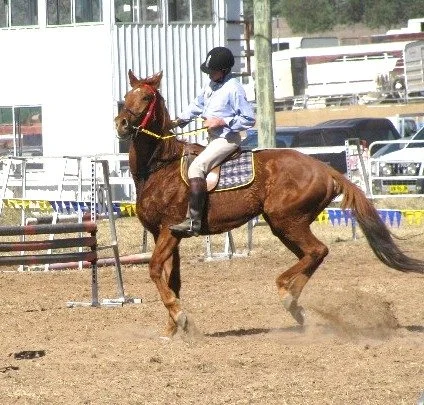Now that the Paris Olympics is coming to an end, I expect some of the controversy over the conflict between horse events and animal welfare will subside for another four years. But it shouldn’t.
I believe we should all be constantly aware of what we do and how it affects our animals. We should question everything we do from the perspective of their welfare. Maybe that means we are reassuring ourselves that what we do is in line with the best interest of our horses. Or perhaps it means we should re-think and alter the way we do some things. And maybe it even means we should ban some practices we participate in.
We should all assess what we do with horses (and all species) with what we judge to be morally acceptable.
But let’s be clear, there is probably no circumstance where what we do does not impose some level of stress. Anytime, there is a conflict between what we are trying to do with a horse and what the horse wants, our horse will feel unhappy. It doesn’t matter if it is something that we do for their benefit, such as dental work or dressing a wound or something we do for our benefit, like bullfighting. If it’s not a horse’s idea, there will be conflict and emotional trouble.
We all make choices between our interests and the horse’s emotional state all the time.
However, when we choose to train a horse to a high level in any discipline, we also choose to command both physical and emotional obedience. There is no way around this. It’s a fact.
Every discipline performed at a high level requires a strong degree of physical effort. Speed and muscular effort (even when speed is not required) are driven by active nervous and hormonal systems. A horse with a relaxed mental and physical state can’t be competitive at barrel racing or eventing or dressage or any sport. A horse needs the adrenaline, the alertness, and the tension to perform at its best. Sleepy horses just don’t make the grade and generally have short careers in competition. A horse can not be putting out a high level of effort and not feel some degree of tension.
Very many competition horses are difficult to ride because of the conflict between the need for them to put out an effort versus feeling emotionally okay when putting out an effort. So we use stronger gadgetry to impose control on our speedy anxious horse. If we had better control over their emotional state we wouldn’t need the stronger gear as we work at the more elite levels.
The reality is that to perform at the highest levels requires more effort from our horses. To achieve that level of effort needs a certain level of adrenaline-induced anxiety. So when we choose to compete at the top level we have to accept that we are guilty of willingly stressing our horses. We have to accept that we are okay with that.
That’s a personal decision we all need to consider when we work with our horses, irrespective if we are riding around the paddock checking fences or competing in an international jumping competition.
Taken at a local agriculture show during a jumping competition.

